We build highly secure AWS infrastructures that are well-automated.
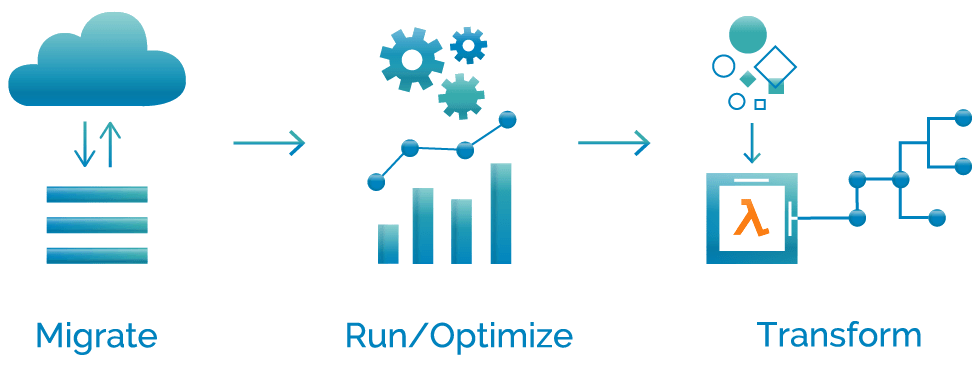
Amazon Web Services
As a certified advanced consulting partner, we help our clients on their journey into the Amazon Web Service (AWS) cloud. We guide our clients from the migrate phase to the run/optimize phase and finally to the transform phase.
We serve you with our skills while teaching you how to do it yourself.
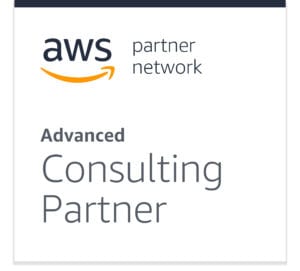
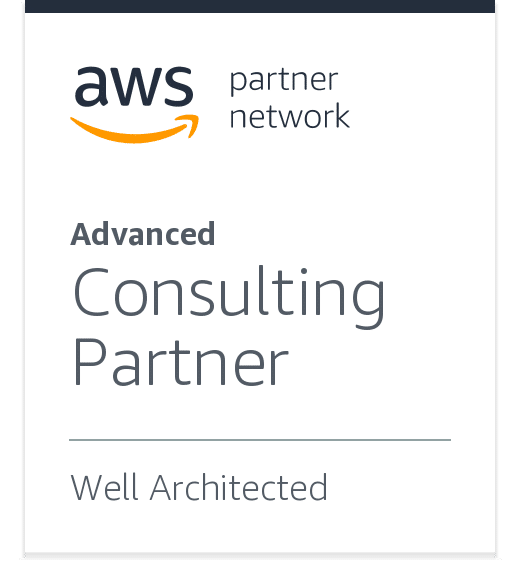
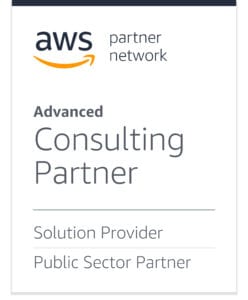
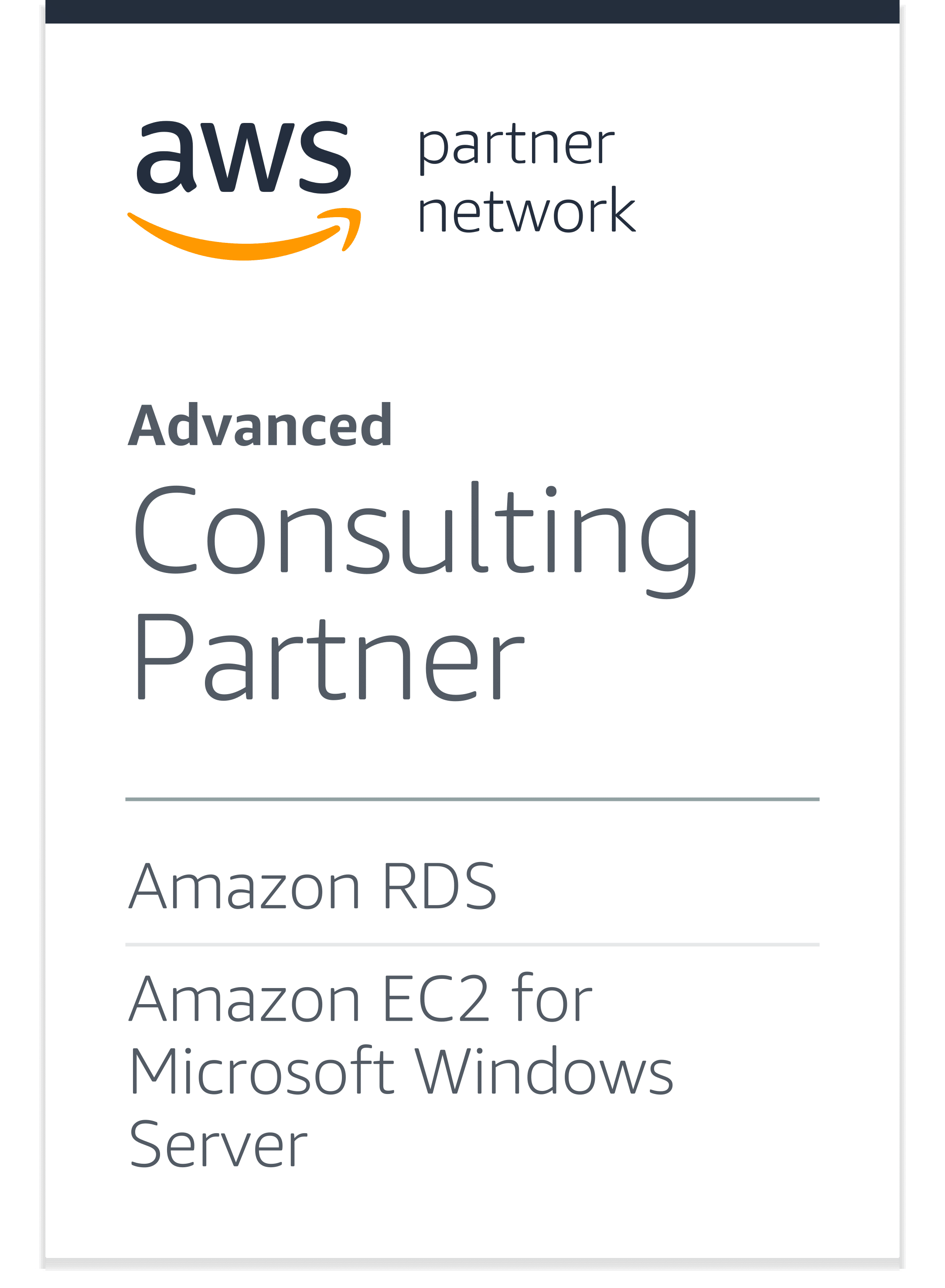
First Steps: Migrate
Organizations have various reasons for moving their workload from an on-premise environment to AWS: to save costs, to offload physical datacenter operations to AWS, or to tap into the wealth of IaaS services that AWS offers.
Initially, an inventory of the existing applications is created and application move groups defined.
A typical lift-and-shift engagement first creates the required infrastructure, secures connectivity, and establishes required instrumentation such as monitoring and platform security mechanisms.
The application move groups are migrated over to AWS through an infrastructure as code approach using AWS CloudFormation and implemented in the new operations framework.
After all resources are moved, the legacy framework is decommissioned and Mode 1 operation can start with Run/Optimize, as described in the next step.


Mode 1: Run/Optimize
Gartner defines Mode 1 as thus: “Mode 1 is optimized for areas that are more well-understood. It focuses on exploiting what is known. This includes renovating the legacy environment, so it is fit for a digital world.”
More static instances are run in the cloud environment. These instances need to be managed well with security, patching, monitoring, and backup. And of course, static instances (compute and databases) need to be optimized over time for speed and cost. copebit offers optimization services around the Well-Architected Framework so that your workload is secure and runs optimally.
Even for static compute instances, we can offer many forms of automation with autoscaling, self-healing and even CI/CD pipelines that deploy new code to your instances automatically.
Mode 2: Transform to Cloud Native
Startups and new applications can start directly in this step. Existing applications have to be transformed into a cloud-native application framework and event-driven programming style. They can build their code according to the 12-factor app principles and leverage the cloud-native features of AWS. Building apps cloud-native allows them to scale indefinitely at minimal cost and still stay very agile. Deployment is highly efficient and fast as a CI/CD pipeline deploys code changes in minutes to the production platform. Code that is developed with Agile methodologies can run serverless with AWS Lambda or in Docker containers hosted on ECS Fargate or Elastic Kubernetes Service (EKS).
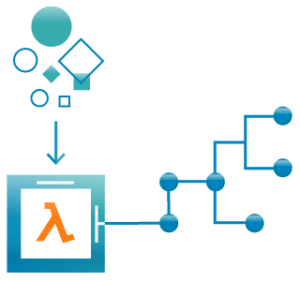
Product/Service Offerings
Our Product/Service Offerings and Features in the AWS space
Customer Journey
Planning Phase
Areas worked on
- planning
- preparation
copebit Services
- cloud strategy
- cost comparison
- platform choice
- TCO analysis
- training
AWS Services
- TCO tool
- monthly cost calculator
First Steps
Areas worked on
- foundation (network/security/etc)
- move first workloads
- full migration to AWS
copebit Services
- concepts
- implementation support
AWS Services
- VM to EC2 Migration
- DB to RDS or EC2 Migration
- EC2, RDS (MS SQL, MySQL, Maria, Oracle, RDS Aurora MySQL and Postgres)
- ALB/CLB
- Config, GuardDuty, CloudTrail, IAM
- CloudFront
Mode 1: Run/Optimize
Areas worked on
- static new workloads
- migration optimization
- infrastructure as code
copebit Services
- cost optimizations
- reservations
- well-architected reviews
AWS Services
- cloudformation
- autoscaling
- professional services
Mode 2: Transform to Cloud-Native
Areas worked on
- dynamic workloads
- cloud native apps
- all Agile-developed and DevOps-enabled
copebit Services
- build container and serverless infrastructures
- build CI/CD Pipelines
- Agile support
AWS Services
- ECS
- Kubernetes
- Lambda
- CI/CD
- Serverless Application Model (SAM)
